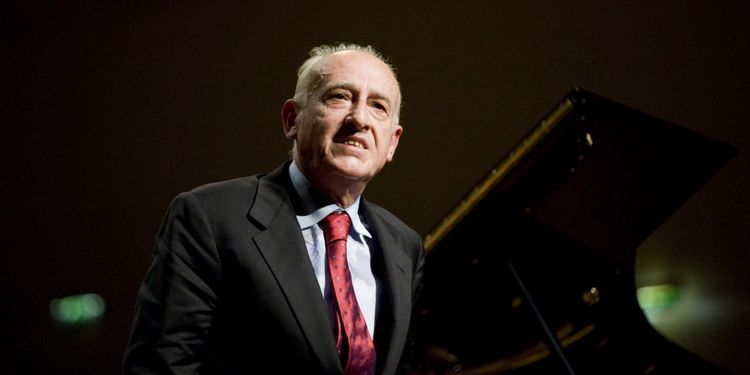Italian Pianist Maurizio Pollini has Died, Aged 82

Across his six-decade career, Maurizio Pollini was known for his interpretations of Chopin, Debussy, and Beethoven; he also embraced the masterpieces of Stravinsky, Schoenberg, and Webern, plus those of postwar modernists including Karlheinz Stockhausen, Pierre Boulez, and Luigi Nono.
His passing was announced by Milan’s La Scala opera house; the cause of death was not specified, however Pollini had withdrawn from performing at the Salzburg Festival in 2022 and subsequent recitals due to heart problems, The New York Times reports.
Pollini was born in Milan in 1942, into a family of artists. His father, Gino Pollini, was an amateur violinist and modernist architect. His mother, Renata Melotti, sang and played the piano, as did his uncle, Fausto Melotti, who was a pioneer in abstract sculpture.
Learning the piano from the age of five, Pollini gave his first recital at age 11 and played Chopin’s complete Études in concert in 1956. In his early years, he looked up to pianists Arthur Rubinstein and Walter Gieseking, as well as to conductors Arturo Toscanini and Dimitri Mitropoulos.
Mentored by Carlo Lonati and Carlo Vidusso, he attended the Milan Conservatory, where he also took courses in composition and conducting.
He made his La Scala debut 1958, and returned to perform at the venue 168 times, until his last recital there in February 2023. Before his death, La Scala was expecting him again later this year.
In 1960, Pollini won the International Chopin Piano Competition at the age of 18 and was the youngest foreign pianist amidst 89 contestants. Rubinstein, who served as jury president, reportedly said that Pollini “already plays better than any of us.”
Immediately after his win, he signed to management and a record company, with whom he made two early recordings and played a few concerts in Europe before withdrawing from the stage ahead of a projected American tour, citing that he “needed some time to think, to decide the course of [my] life,” as well as to study and “get to know the repertoire better.”
Though he returned to performing, Pollini did not record any works for several years but presented live concerts, which he played for free in Italian factories and for high prices in New York’s Carnegie Hall. He embarked on his first American tour in 1968.
Additionally, Pollini presented concert programs for students and workers at La Scala, conducted by his longtime friend Claudio Abbado. His collaborators also included Riccardo Muti, Daniel Barenboim, and Riccardo Chailly.
“Art itself, if it is really great, has a progressive aspect that is needed by a society, even if it seems absolutely useless in strictly practical terms,” Pollini told The Guardian in 2011. “In a way, art is a little like the dreams of a society. They seem to contribute little, but sleeping and dreaming are vitally important in that a human couldn’t live without them, in the same way a society cannot live without art.”
Partnering with the Deutsche Grammophon label, Pollini returned to recording in 1971, with albums including piano works by Beethoven, Chopin, Schumann, Schubert, Mozart, Brahms, Liszt, Debussy, and Schoenberg, writes The Washington Post.
In 1980, he won the GRAMMY Award for best classical performance for his recording of Bartók’s first two piano concertos with the Chicago Symphony Orchestra. He won his second GRAMMY in 2007, for his album of Chopin Nocturnes.
“[Pollini] does not say very much, but he thinks quite a lot,” Boulez told The NY Times in 1993. “I find him very concentrated on what he is doing. He goes into depth in the music, and is not superficial, and his attitude as a musician is exactly his attitude as a man. He is as interesting as anyone could be.”
“[We mourn] the loss of Maurizio Pollini, one of the great musicians of our time and a fundamental reference in the theater’s artistic life for over fifty years,” La Scala wrote in a tribute. “Alongside his greatness as an instrumentalist, his testimony on the role of music itself remains fundamental, understood as an essential component of culture and civil life and as an instrument for the transformation of society.”
Mr. Pollini is survived by his wife Marilisa, and his son Daniele, also an acclaimed pianist and conductor. Our condolences to his family, friends, students, and colleagues.















































